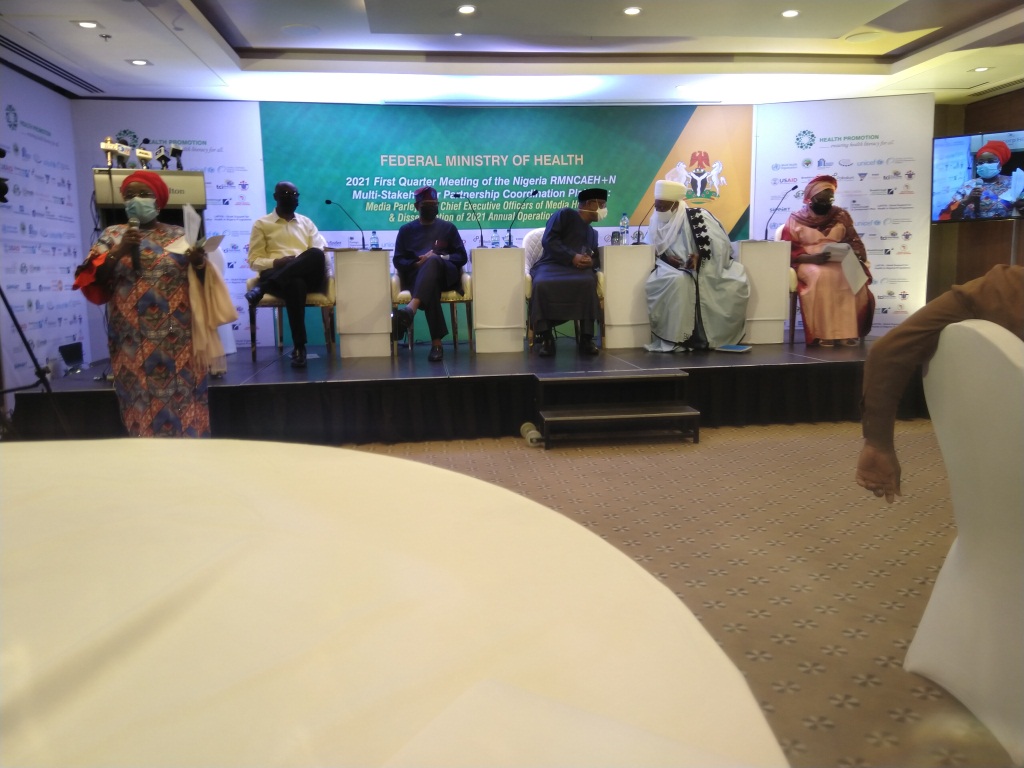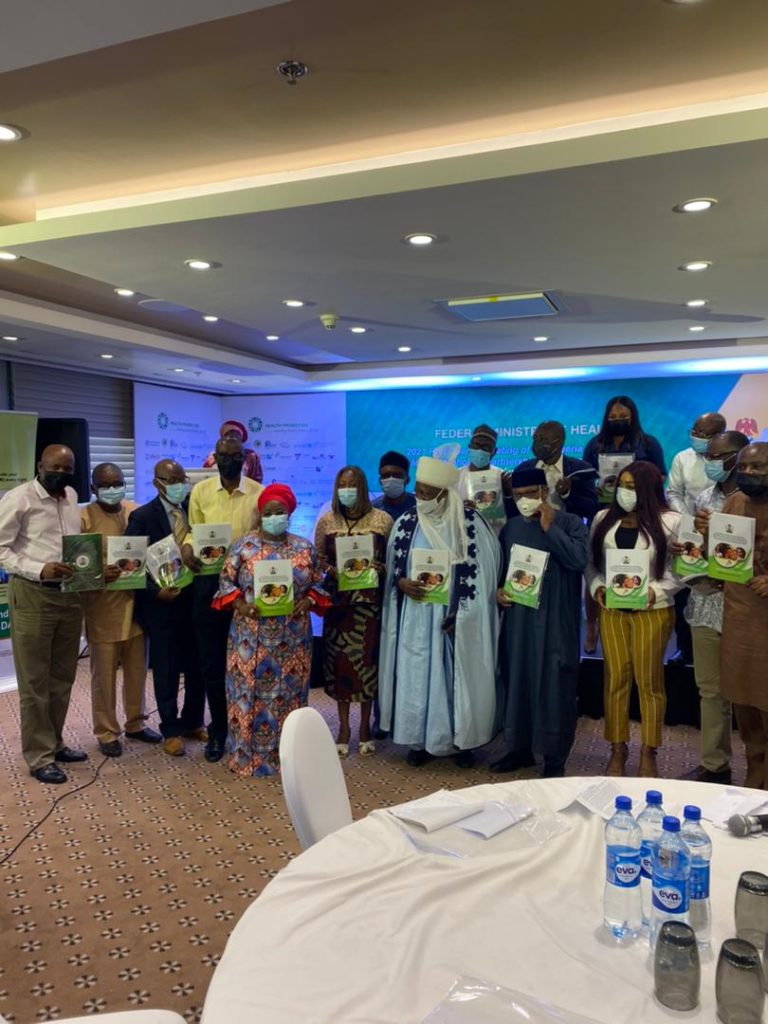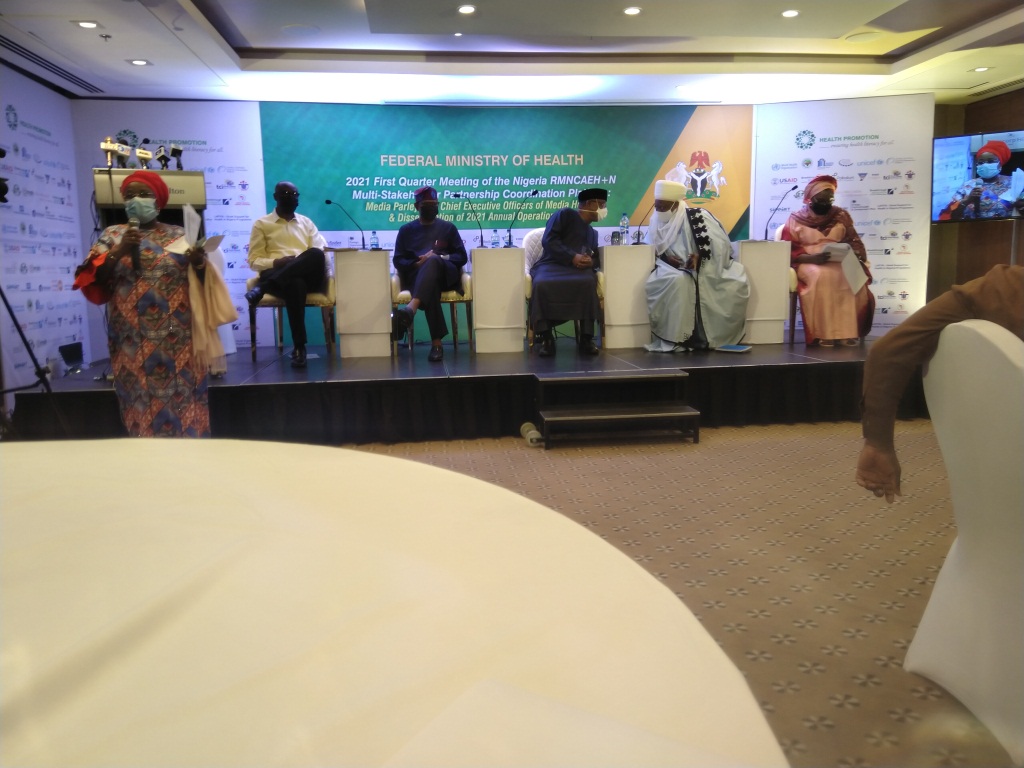
By Sunday Oyinloye
For some time now, stakeholders in Nigeria’s health sector have been expressing their concern over the weakness in the health care system. The 2021 Annual Retreat of the National Advocates for Health held in Abuja this February clearly brought out the issue. The advocates were uncomfortable that the health sector is weak. Weakness not because Nigeria does not have the manpower to drive the health sector, but they are worried that some of Nigeria’s best brains in the sector are in America, Canada, United Kingdom and other parts of the world where they are better appreciated than their home country.
Besides brain drain among health workers, many government hospitals are literally consulting clinics with inadequate medical equipment and those that have medical equipment could hardly maintain them because of poor funding.
This is the tragedy of Nigeria’s health sector which successive administrations have been trying to reposition with just a little success, a situation that has led to medical tourism on the part of the elites who could afford it.
In some parts of the world, husbands can almost be sure that their pregnant wives will deliver safely, but in Nigeria, most husbands and family members are scared, particularly among the poor whose pregnant women barely attend antenatal sessions, one of the reasons why maternal mortality rate is still high in Nigeria. According to the World Health Organisation, Nigeria had the second highest of number of annual maternal deaths in the world in year 2010 and contributed to 14 percent of all maternal deaths globally. Eight years after (2018), the maternal mortality was 512 per 100,000 live births .This is still very much on the high side.

In the developed world, the maternal mortality rate is lower. Quoting official data, Reuters said “From 2015 to 2017, 209 mothers died from pregnancy-related causes, out of more than 2.2 million women who gave birth in the United Kingdom.”
However, in Nigeria, even when mothers are lucky to have safe delivery, their children are exposed to malnutrition and other conditions not only because of poverty, but lack of adequate information on healthy living.
Again, due to ignorance, some men have turned their wives into baby making “factories”. You hear of poor women having 15 to 17 children when in fact the ideal number medically is four. These and other challenges are holding back the health delivery system in Nigeria which needs urgent and sincere intervention if the country has to move forward. After all, a healthy nation they say is a wealthy nation
It was in the light of this that the Federal Ministry of Health established Reproductive, Maternal , Newborn, Child, Adolescent, and Elderly Health plus Nutrition ( RMNCAEH+N) Multi stakeholders Partnership Coordination Platform ( MSPCP) devoted to improve the health and wellbeing of mothers, children, adolescents , and the elderly in Nigeria.
Early last week, the Federal Ministry of Health invited Media owners and senior Editors in the country to the 2021 first quarter meeting of RMNCAEH+N in Abuja. There were two reasons for the invitation. One; to sensitize and advocate to Media Chief Executives on their roles and responsibilities towards improving health and wellbeing of women, children, adolescents and the elderly to achieve the goal of RMNCAEH+N strategy in Nigeria . The second reason for the meeting was to disseminate RMNCAEH+N MSP Coordination platform 2021 Annual Operation Plan.
In his welcome address, the Minister of State for Health, Dr. Adeleke Olurunnibe Mamora said Media Executives were invited because the Ministry of Health recognizes the importance of Media in the dissemination of news.
According to him, a good working relationship between the ministry and the Media would help to achieve the set goals for establishing RMNCAEH+N.
Momora who challenged the Media on accurate reporting said “If you see something, say something”.
Giving an overview of RMNCAEH+N in Nigeria, the Director, Family Health Department, Federal Ministry of Health, Dr. Salma Ibrahim Anas presented a near gloomy situation of childhood mortality rate and maternal mortality rate in the country stressing however that the Ministry is doing everything possible to ensure light at the end of the tunnel.
Listen to her” Neonatal mortality is still high in Nigeria; maternal mortality ratio is also high because of weak health system. This is unacceptable. If women cannot give birth without death, it shows that the country is not ready for development”
Explaining the challenges of maternal mortality in Nigeria further, Salma revealed that some women cannot even afford transport fare to the hospital for antenatal care adding that the believe in some cultures that it is normal for women to die while giving birth is wrong.
She identifies three gaps as being responsible for the unfortunate trends in childhood mortality rate, vaccination coverage and in maternal health care. The first according to her is Human factor, triggered by low awareness, misconceptions, fatalistic beliefs and illiteracy.
The second gap she noted is Social-Economic factor triggered by cultural interference and poverty while the third gap is System factor triggered by weak system preparedness for public health emergencies like covid, weak coordination at subnational levels with dichotomy, weak subnational implementation of interventions, weak system of accountability and knowledge management, suboptimal overall coordination of partnership, and low level of advocacy commensurate with rate of deaths.
On the positive side, the Director pointed out that there are opportunities in Basic Health Care Provision Fund , renewed commitments by stakeholders, lessons learnt from the past, robust partnership, as well the cooperation of traditional Institution who have been sensitizing their people.
Salma sees the way forward in public enlightenment by the media, effective partnerships, community involvement with gatekeepers like traditional rulers, empowerment of women and systems strengthening.
She commended states that have budget line for family planning and assures that the Ministry was committed to addressing issues bothering on childhood mortality maternal mortality and vaccination coverage.
Speaking to “The role of the media in promotion of the health and the wellbeing of women, children, adolescents and the elderly, the Director Health Promotion Division, Ladidi Bako-Aiyegbusi stressed the need for the Federal Ministry of Health to strengthen its relationship with the media.
“We shall continue to update the media on our activities. We have not been able to meet the national goals of health indices, but we can reverse the trend by following the basic rules associated with healthy living like eating rightly, hand washing amongst others. Behavioral lifestyle has an impact on health.” She said.
Ladidi wants the media to be more involved in the Ministry’s Healthy Lifestyle Campaignadding that healthy lifestyle will promote good health, reduce diseases and make Nigerians to be more productive
Also speaking at the meeting, the Emir of Shonga, Alhaji Haliru Yahaya stressed the need for population management. According to him, some Nigerians are sentimental about population control.
“Any man who allows his wife to have more than six children is not fair to her. It is even risky for a woman to have more children after the first four. If you give birth to many children and say God will look at them, that is not right. Failure to look after your wife and children is a sin.” He said.
The Royal father calls for skills acquisition of women and management of the nation’s population
Speaking of behalf of the Media, the Managing Editor, Northern Operation of The Nation, newspaper, Yusuf Alli advised the Federal Ministry of Health not to allow the meeting to be one- off.
He further challenged the Ministry to always make data and other necessary information available to journalists whom he said are stakeholders in the development of the health sector.
The Managing Editor also advised the Ministry of Health to “invest” in the Media adding “ I also advice that the Minister should take journalists along any time he’s on project tour and other functions that have to do with the promotion of health of Nigerians.”
Making case for the 36 state governments, the representative of Commissioners of Health in Nigeria, Betta Epu said the State governments should be given technical support by the Federal Ministry of Health to push RMNCAEH+N
Betta also calls for the creation of Department of Family Health by the state governments and more attention for the health of women, children and the vulnerable.
Presenting RMNCAEH+N MSPCP 2021 annual operational plan, the Minister of Health, Dr. Osagie Emmanuel Ehanire promised to work with the media to realise the set goals of the ministry adding “henceforth, there will be regular media briefing by the ministry”.
Osagie disclosed that the health indices of the vulnerable is still poor in the country and describes as unacceptable a situation where people are still being taken to the hospital on wheelbarrows.
To address this challenge, he hinted that the Federal Ministry of Health would be introducing National Emergency Medical Service and Ambulance System in collaboration with the private sector. The services according to him would be without immediate out-of-pocket by the beneficiaries and will help reduce maternal mortality rate and other avoidable deaths caused by lack of transportation to hospital.
Touching on healthy living, the Minister said malnutrition is a challenge in the country not only among the poor but also among the rich adding” 18 percent of children from well to do parents have malnutrition due to lack of necessary information on diets. The Media can also help in this direction by providing necessary information”
Osagie who advised that cultural beliefs that impact negatively on the health of Nigerians should be done away with said the task of providing healthcare services rests on the three tiers of government. Nigerians have always been longing for improvement in the health sector, therefore, with this new partnership between the Media and the Federal Ministry of Health, their expectations will be higher, particularly on conditions that affect women, newborn, children, adolescents and the elderly.










